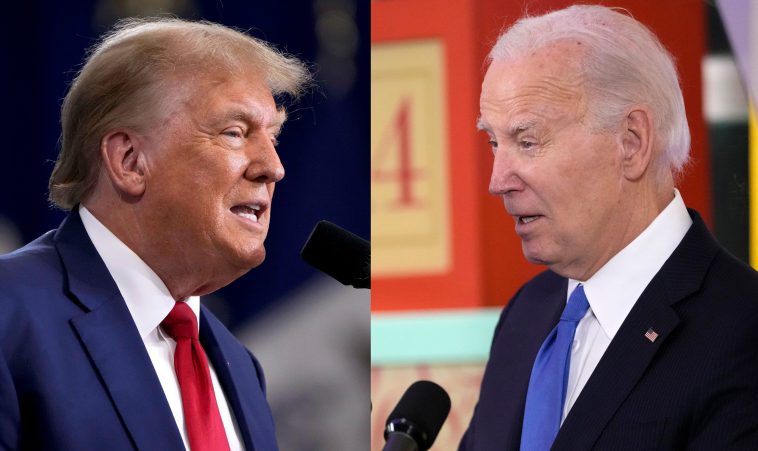Barring asteroids hitting the Earth before then, the presidential ballot in November is set to feature Joe Biden versus Donald Trump.
Again.
With Super Tuesday over, the rematch almost no one wanted now seems all but certain.
Trump’s near-sweep of GOP contests in 15 states and one territory − with the exception of Vermont − put him within striking distance of enough Republican National Convention delegates to clinch the nomination. His last remaining GOP rival, former South Carolina Gov. Nikki Haley, is dropping out of the race.
Meanwhile, Biden’s State of the Union address Thursday will launch his election-year agenda, with the preservation of democratic institutions once again the heart of his message.
Prep for the polls: See who is running for president and compare where they stand on key issues in our Voter Guide
That all sounds familiar enough, but the 2024 campaign is not simply a rerun of the original version four years ago. Changes in the candidates and the world are defining a different political landscape and creating new challenges, especially for Biden.
In his victory speech at Mar-a-Lago in Florida, Trump targeted Biden, calling him “the worst president in the history of our country” and adding, “Nov. 5, it’s right around the corner.” In his written statement, Biden focused on the general election, too. “Today, millions of voters across the country made their voices heard,” he said, “showing that they are ready to fight back against Donald Trump’s extreme plan to take us backwards.”
In recent months, the current president has begun lagging the previous one in national and swing-state polls.
What’s different in 2024?
This time, it’s incumbent vs. incumbent.
In 2020, Trump was the incumbent and Biden the challenger, with the freedom to criticize his opponent’s record without having to defend one of his own.
Consider immigration. Trump used heated rhetoric to warn of the dangers of migrants and instituted harsh and controversial policies, including separating families at the border. In the 2020 campaign, candidate Biden promised a more humane approach that would be consistent with America’s aspirational values.
Now, as the current resident of the White House, Biden owns the surging problems at the southern border.
In recent weeks, he has begun calling a record flood of asylum seekers there a “border crisis” and endorsed legislation that could close the border at times and expedite deportations. He no longer mentions an early priority, to create a pathway to citizenship for “Dreamers,” those brought to the U.S. illegally as children.
Securing the border and controlling immigration gives Trump the biggest issue advantage over Biden, according to an NBC News poll taken in January. Those surveyed said by a yawning 35 percentage points that Trump would be better at handling it than Biden.
The issue continues to galvanize Republicans. In exit polls Tuesday, GOP primary voters in North Carolina and Virginia cited immigration as the most important issue, more important even than the economy.
Biden’s foreign policy cred is under fire.
In 2020, Biden emphasized his foreign policy experience, while depicting Trump as a peril to U.S. alliances and interests in the world.
But the botched withdrawal of U.S. forces from Afghanistan in 2021, costing 13 U.S. service members their lives, shook the image of him as a steady leader. Now in the Mideast, his support of Israel’s military response to Hamas’ brutal attack six months ago has created a new crisis. The humanitarian catastrophe in Gaza has divided the Democratic Party and prompted protesters to disrupt events by Biden, first lady Jill Biden and Vice President Kamala Harris.



